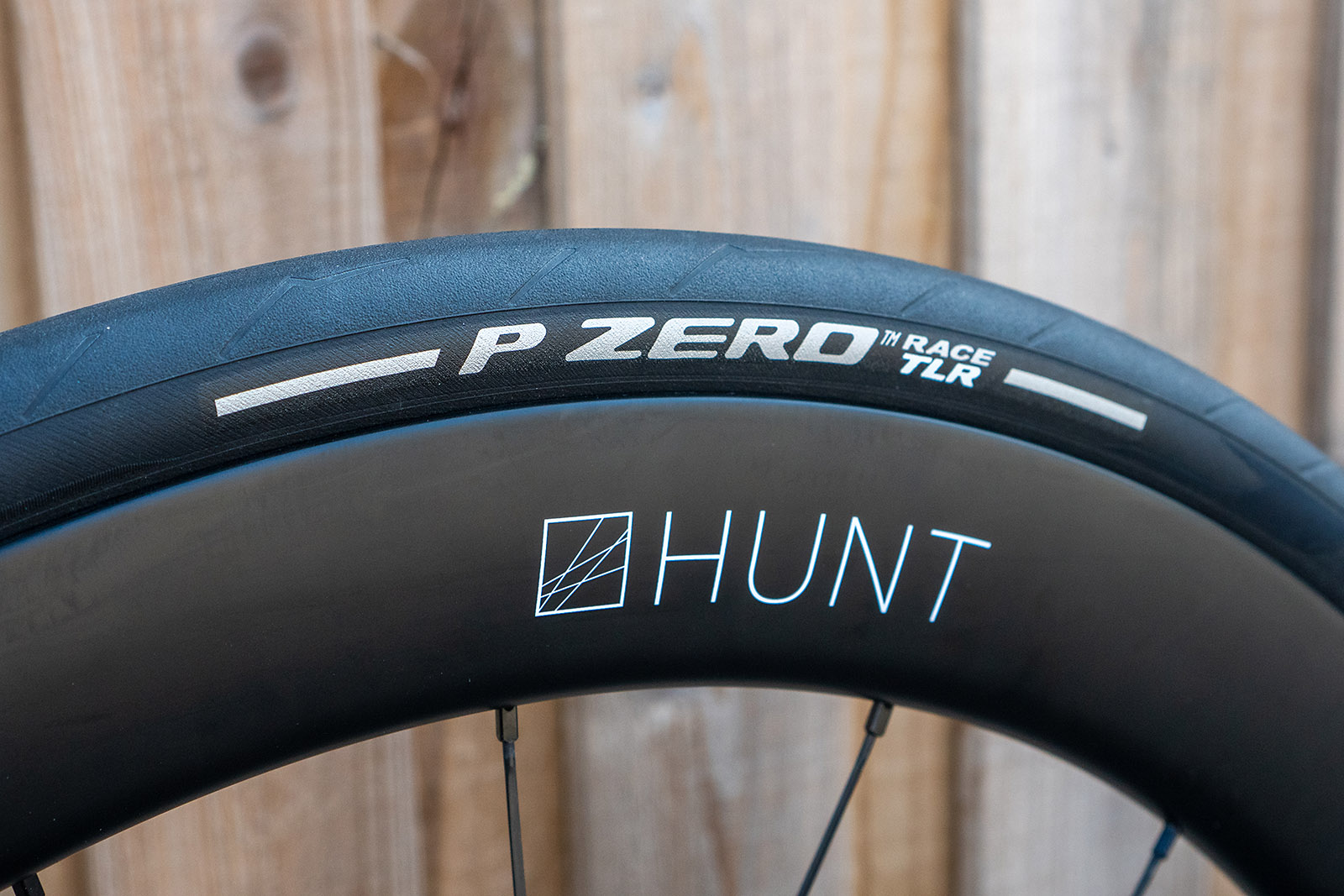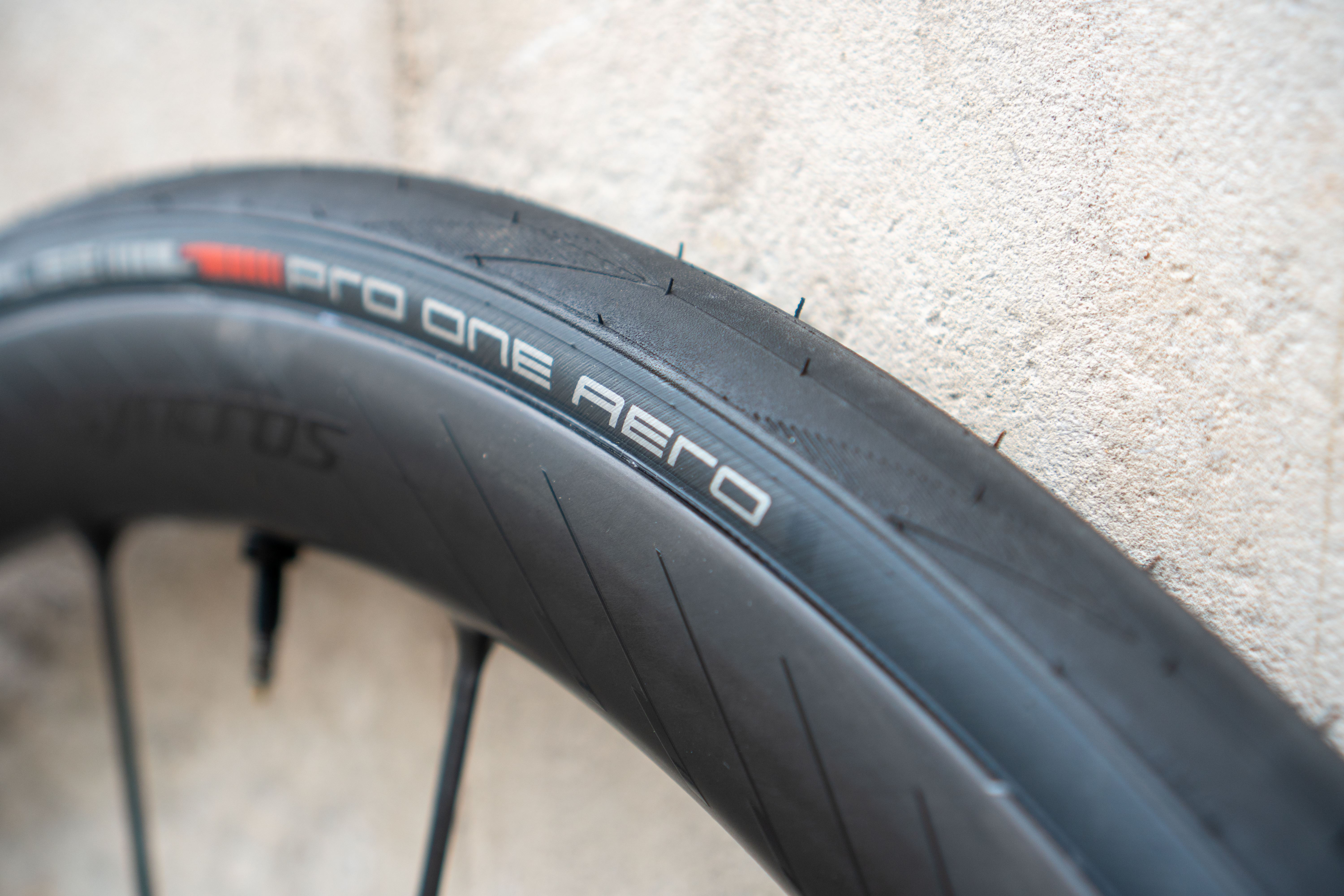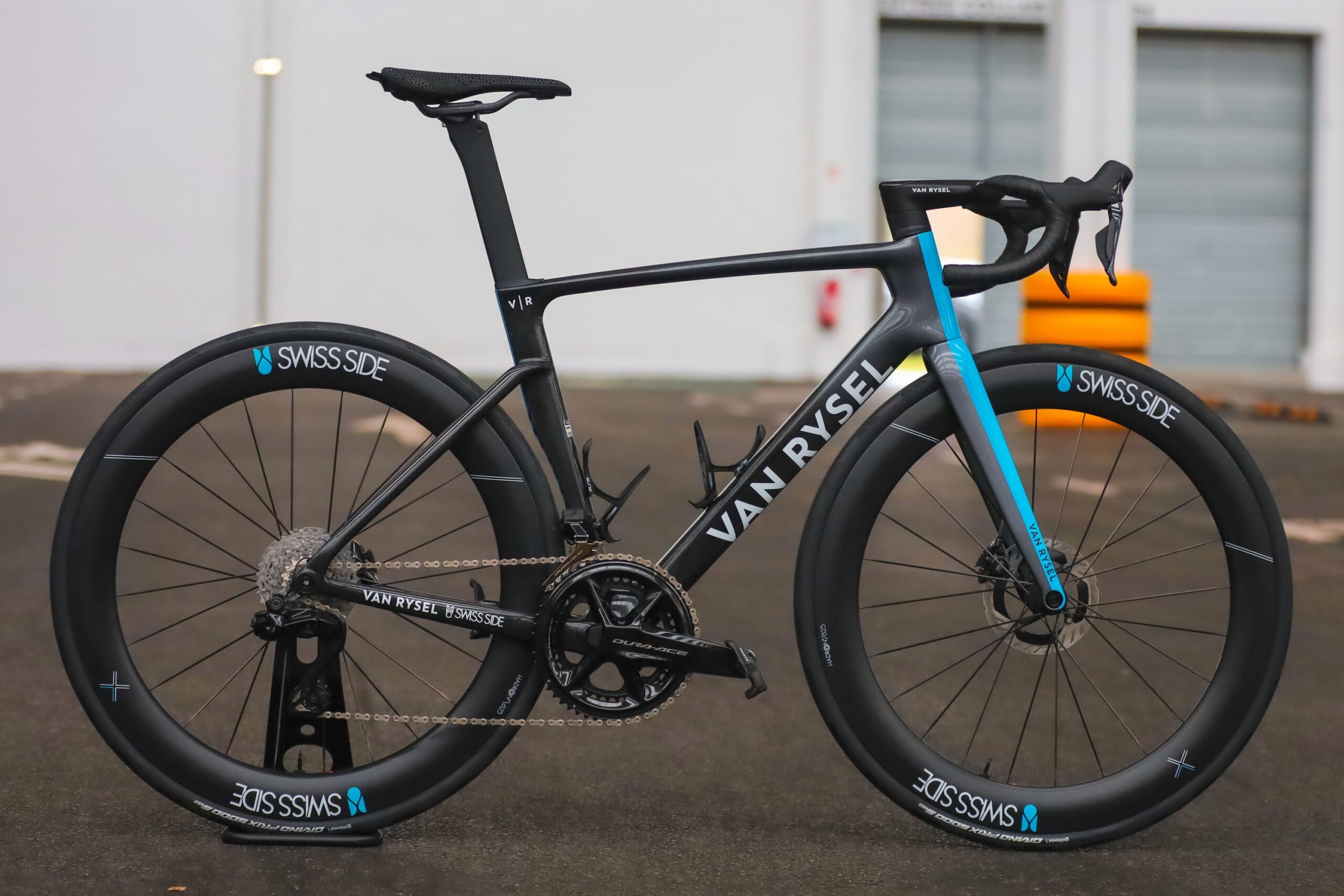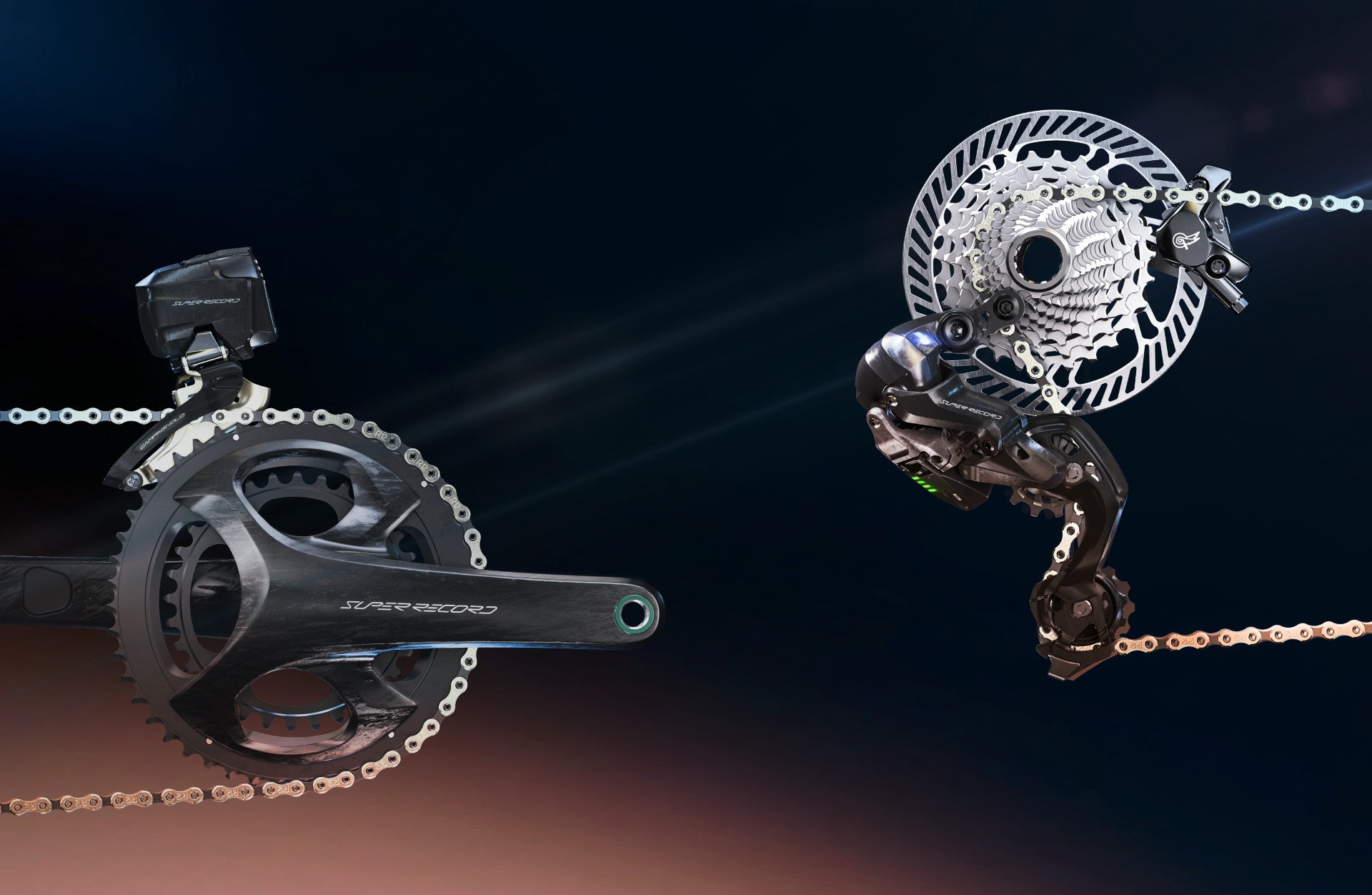The more things change, the more they stay the same?
While road tech can often feel as though it moves forwards with the zeal of a glacier, 2023 has been an interesting year.
We saw new endurance bikes herald the greater conflation of endurance and gravel, new tubeless road tyres from most of the big brands and fresh road groupsets from the Big Three (and more besides), to name just a few.
As ever, this leaves open questions. Will the trend towards adopting wider tyres continue? Will Schwalbe update or replace the venerable Pro One TLE? And will the inexorable decline of rim brakes continue?
Read on for our six predictions for the year ahead.
Ashley Quinlan | Real-world riders will adopt even wider tyres… but tyre brands have maxed out for now
There’s a lot to be said for opting for wider tyres, and I think it’s likely we’ll see more and more people going bigger in 2024.
I’m not talking about a step-change here, but rather a slow adoption as mass ranks of riders succumb to the charms of a smoother, easier, more confident ride experience.
Change never happens overnight. Understandably, some are happy with their current setup and see no reason to change, while others remain unconvinced of the purported benefits associated with going wider.

However, I believe we’re approaching a tipping point with mass adoption, as riders wear down their old narrower rubber and find a need to replace it.
A snowball effect will take place, whereby one might have given it a go (with a positive experience), prompting others to try, who in turn report their experiences to the willing ears of interested riders. They will then make the switch, and so on.
Before long, I think we’ll hear the death knell of the 700x25c tyre, with 700x28c perhaps even considered ‘narrow’, as more choose to go even wider.

That said, I think tyre brands aren’t going to keep pushing the width envelope much further (although the fact that Pirelli makes the P Zero Race TLR tyre in a massive 700x40c width suggests I could be mistaken).
Generally speaking, road bike tyre clearances now top out at around 35-36mm (measured). The latest Specialized Roubaix SL8 is a notable exception to the rule at 40mm, and the Giant Defy can fit 38mm rubber.
However, while roadies have taken their time to edge width to this point, I think it could be optimistic to think they’ll simply keep on inexorably moving up.
If true, why should tyre brands rush to meet a demand that might never exist?
Warren Rossiter | The birth of the ‘Britney’ bike

For road tech trends, there is the obvious unstoppable march towards complete integration and electronic drivetrains being cemented as the only choice for ‘serious’ performance bikes.
I’m also seeing signs of a re-emergence of the weight wars of the early noughties, when the weight weenies were king before being supplanted by the aero aficionados.
Brands are back talking weight rather than watts and components are back to troubling the scales less and less.

This will be fun, because arguments around the truth of digital scales were always entertaining (for an outsider), though I can imagine it being a challenge for retailers and brands entering the competitive weight-loss world.
However, I think the major trend is within endurance bikes, and the arrival of what I’m terming the Britney bike. Just as the troubled Chanteuse lamented “I’m not a girl, not yet a woman”, for the endurance bike it’s “I’m not a race bike, not yet a gravel bike”.
It started earlier in 2023 with the Vitus Venon Evo and Ridley Grifn, and it’s spiralled with bikes such as the Specialized Roubaix SL8, Merida Scultura Endurance GR.

I think we’ll see plenty of pro tour riders vacationing in gravel races, adopting and adapting bikes such as the Roubaix and Scultura. This will help us cotton on to the fact that you can have one bike to do most things (as much as that catches in my throat, being a serial bike-buying addict).
Of course, there’s always the exception that proves the rule – Giant’s new, and rather brilliant, Defy.
Now this absolutely isn’t a Britney bike, but it’s most certainly a bike weight weenies will covet.
Simon von Bromley | Schwalbe looks set for a big year

Road bike tyre tech has developed rapidly in recent years, with manufacturers making faster and more durable (and more expensive) tyres than ever before.
Schwalbe – one of the major players in this segment – has been relatively quiet since it last overhauled its range in 2019, though.
While our fast tyres group test proved its Pro One TLE remains competitive with the best tubeless road bike tyres, the German brand looks set to release a number of new models in 2024, and there’s reason to believe tyre nerds such as myself should be excited.
Schwalbe announced the Pro One Aero earlier this year, featuring updated casings and compounds, but it had more new tyres hidden in plain sight throughout the season.

There was the set of blue-accented Pro One TLE tyres on Alexander Kristoff’s Dare VSRu at the Tour de France, for example.
A number of Schwalbe-sponsored athletes also used grey and blue versions of the Pro One TT at the Kona Ironman world championships this year – a tyre which, as things stand, is only available in a classic ‘gumwall’ colour.
Most excitingly, these blue-accented tyres share a distinct visual similarity with the Pro One Aerothan prototype tubeless tyre teased by Schwalbe at Eurobike this year.

This tyre is claimed to use a new construction influenced by the ultra-light tech used in Schwalbe’s Aerothan thermoplastic (TPU) inner tubes.
As a result, Schwalbe claims this tyre weighs just 165g in a size 700x28c and exhibits “very low rolling resistance”.
For context, that’s almost 100g less per tyre than the current Pro One TLE (264g, size 700x28c) – already one of the lightest all-round road tubeless tyres.

I believe Schwalbe may have incorporated a TPU liner into the casing of the Pro One Aerothan (and other potential new models mentioned), enabling it to make the casing thinner and lighter.
This, plus five years of compound development, may have enabled it to make substantially faster and lighter tyres, without overly impacting air retention or durability.
Whatever the case, could Schwalbe be about to upend the established pecking order for racy road bike tyres in 2024?
Liam Cahill | Arise, the slightly-more-affordable race bike

Bike prices are silly. I’m glad we all agree.
Top-spec models cost 12, 13 or even £14,000 and second-tier builds, that many of us aspire to call our own, are now out of reach to all but the very affluent.
If I was to buy my own Specialized S-Works Aethos today, the frame would cost £4,750 / $5,000. An Ultegra Di2 build similar to my own would be £8,200 / $8,000.
Trek too, has some high prices. An Emonda SLR 7 costs £8,300 / $8,999.99 for Ultegra Di2 or £9,200 / $9,699.99 for the SRAM Force AXS build.

But look away from the big brands and there is hope on the horizon.
We spotted a whole host of new Van Rysel bikes at Sea Otter and the prices look set to be at the more sensible end of the spectrum.
The SRAM Force eTap AXS build, with Zipp 404 Firecrest wheels, costs $6,999 in the US and €4,700 in Europe.
Giant’s Propel Advanced Pro 0 AXS was our Aero Bike of the Year in 2023, winning significant praise for a race-ready build at the £6,399 / $8,000 / €6,900 price point.

Merida’s Scultura 8000 is a cracking deal for Ultegra Di2 at £4,800 / $6,499 and then you have bikes such as the Elves Vanyar Pro Disc I’m currently testing.
That bike, in its Ultegra Di2 guise, comes in at £3,999 ($1,300 frameset only in the US) with the option for custom paint as standard.
So, there are bikes on the market that I think will gallop to your aid – something of a knight in shining armour for the cyclist who thinks all 2024 bikes are too expensive.
Or you might think four grand is still silly money for an Ultegra Di2 bike. In that case, I’ll get back to the drawing board.
Jack Evans | By the end of 2024, the road groupset ‘Big Three’ will lose a member

In The Sun Also Rises, Ernest Hemingway’s character Mike explains how he went bankrupt: “Two ways. Gradually and then suddenly”.
Substitute bankruptcy for decline and this aphorism could be applied to Campagnolo’s presence in the WorldTour.
The ‘gradual’ part is well underway: in 2023, the prestigious Italian brand slipped down to one sponsored team in the men’s WorldTour and it supplies none in the women’s WorldTour.
Next year, it may disappear from the top level of the sport entirely.

The consumer market doesn’t look much better. Only Italian bike brands, such as Pinarello, reliably spec Campag, and usually the top-of-the-range Super Record Wireless.
It’s too early to conclude that the brand’s new, 12-speed, electronic groupset has flopped. But the Canyon Endurace CFR was one of the only non-Italian bikes to offer a Super Record Wireless option in 2023.
Therefore, the ‘sudden’ part of Campagnolo’s decline looks imminent. To survive, will the Italian brand cease production of its entry-level and mid-tier groupsets, which are falling from favour, and mainly sell Super Record Wireless to consumers?

It’s more certain that SRAM and Shimano, despite the latter’s crankset recall fall-out, will consolidate their dominance among the pros and amateurs.
In the long-term, Microshift could challenge the ‘Big Two’ by undercutting them on price if it releases a road groupset alongside its gravel and mountain bike options.
I also predict that more riders will spec aftermarket drivetrain components from the likes of Garbaruk, Absolute Black and Wolf Tooth on their road bikes.

The atypical sizes of chainrings and cassettes these brands offer are more useful on gravel and mountain bikes than on the road, except in niche racing disciplines such as hill climbing and road bike time-trialling.
But premium road groupsets have converged visually – the latest Shimano Dura-Ace Di2 R9200 and Ultegra Di2 R8170 look more similar than ever.
So more road cyclists will customise their bikes with colourful, lightweight aftermarket drivetrain components to stand out on the group ride, rather than for performance benefit.
Jack Luke | The new SRAM Red AXS groupset won’t include a rim brake option

A new SRAM Red AXS groupset will, almost certainly, arrive in 2024.
The brand’s flagship road bike groupset is well overdue an update and recently filed patents hint a new launch is imminent.
Beyond that, we have no details on what new features a Red AXS groupset will include.
But I’d put money on one thing – there will be no rim brake option.

High-end rim brake road bike availability is in terminal decline, and there simply isn’t a big enough market for SRAM to bother making new rim brake components.
That’s not to say there are no riders who would appreciate a rim brake option – a niche audience (myself included) are die-hard rim squidgers, but we’re in the minority.
However, there should still be hope for rim-brake lovers who want the latest shifting tech.

AXS-family wireless shifting components are all inter-operable, meaning you can mix and match different-tier groupsets (and even road and mountain bike components).
I would be astonished if SRAM moved to an incompatible protocol for its new Red AXS groupset, so it should still be possible to pair ‘old’ rim brake shifters with new drivetrain components.
Still, with Campagnolo dropping a rim brake option from its Super Record Wireless groupset and Shimano carrying over previous-generation components for Dura-Ace R9200, the days of the high-end rim brake road bike groupset are clearly numbered.